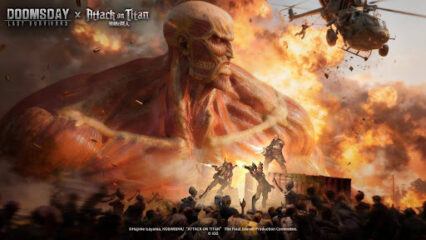Basic Economy Guide for Game of Thrones: Conquest

Resources play a central role in a lot of functions in Game of Thrones: Conquest. If you’re able to produce a ton of resources, you hold the key to long-term success in the game. This is especially taking into consideration the fact that everything you do requires you to spend wood, food, stone, or iron. Balancing the House’s resource production and expenses all goes back to basic economics, which we’ll be discussing in this BlueStacks Economy Guide to help new players get a better grasp of managing this part of the game.
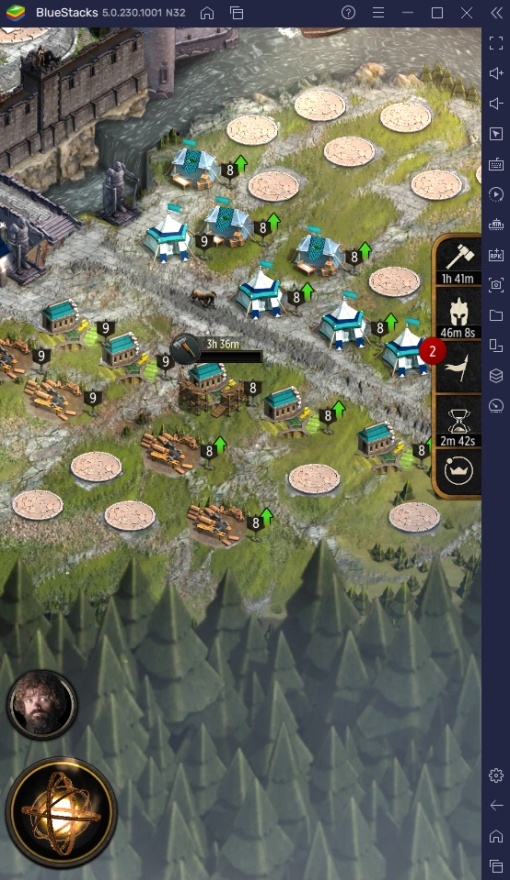
Game of Thrones: Conquest has four primary resources – Food, Wood, Stone, and Iron – all of which play a significant role in the game. Food and Wood are available at the start of the game, but you’ll need to have a Level 10 and 15 Keep to unlock Stone and Iron, respectively. Food is probably the most important resource in the game and will be the hardest to acquire, but the others must also be given a decent amount of attention in order to continually build up your economy later on.
Production Buildings
Production buildings will be your primary source of resources since they are the ones that aren’t affected by external threats. Farms, sawmills, stone quarries, and mines should always be at maximum capacity and be upgraded to the highest level. Players will also be tasked with collecting resources at least every hour so that they won’t have wasted overflow of resources, as it will hurt your economy in the long game. After all, the cumulative loss isn’t ignorable if you compile it.
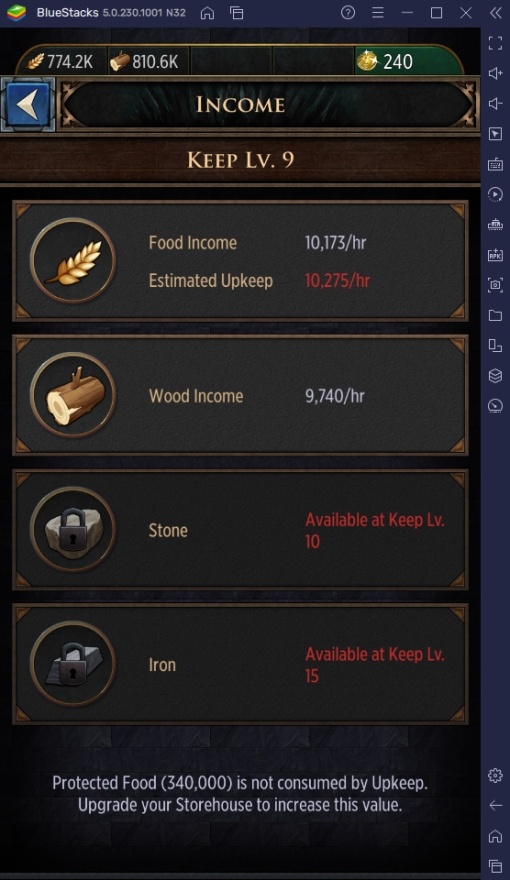
Whenever you upgrade the Keep, the first things that you want to max out are your production buildings. You might not see their value at first since there are a lot of free resources at the beginning of the game but they are actually important towards keeping your economy stable, especially your Farms. However, you shouldn’t rely solely on production buildings to fill your base with resources since they do have a relatively low production rate compared to other economy-improving methods.
Troop Upkeep
Troop Upkeep is an important discussion to be had. Each soldier that you train corresponds to a certain amount of upkeep, which is essentially the amount of food they eat per hour. Having more troops means that you’ll have a higher upkeep, which will ultimately slow down the rate at which you produce food. Food is an important resource that you will need to upgrade certain buildings and train even more soldiers to improve your overall military strength, so you should always have an abundance of that resource.
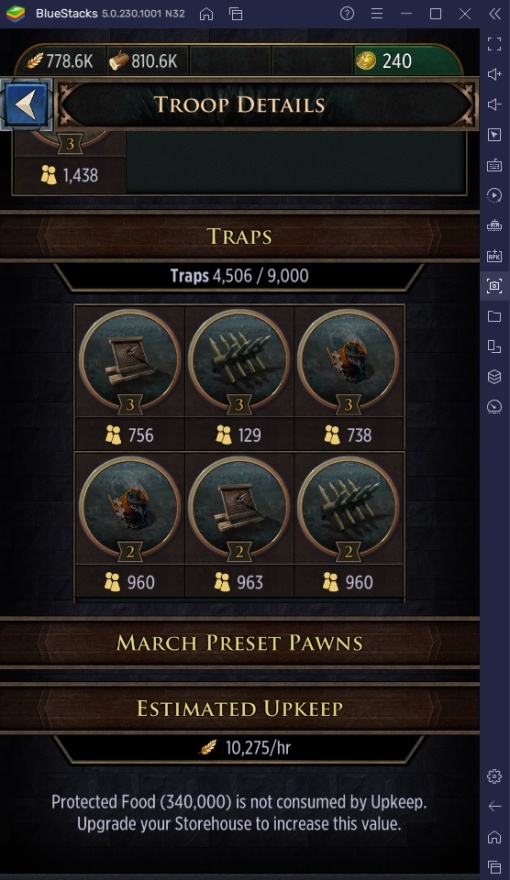
Managing troop upkeep is important for your house, but that doesn’t necessarily mean that you’ll stop training soldiers for the sake of controlling your upkeep. If this happens, it just means that you have to find other ways to procure food to feed your army, such as attacking other players or collecting resources within Westeros. Since you’re training a bunch of soldiers anyway, it’s better for them to earn their keep by doing some work for the kingdom and profiting from their simple existence.
Gathering Resource Nodes
Resource nodes are the areas on the map that contain specific resources that you can gather using your soldiers. To look for resource nodes, simply go to the overworld and look for things like Farms and Lumber Camps. These areas don’t inherently contain any hostile monsters or NPCs, but other players may already be occupying them, so be mindful if the node has any indicators that it belongs to another player if you don’t want to accidentally make someone else angry, especially if it’s a stronger player.
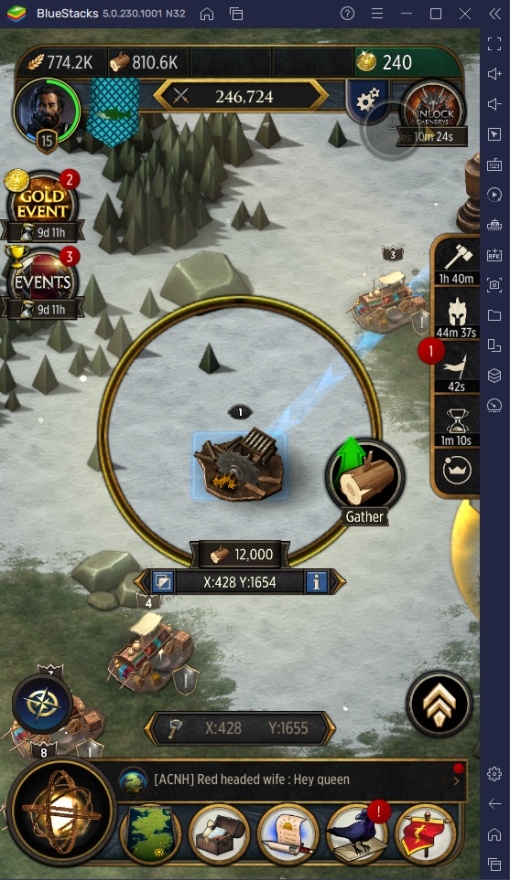
Depending on your troop’s gathering speed and loot capacity, gathering resource nodes may take a long period of time to collect. Be careful about gathering resource nodes since it leaves your base practically vulnerable to an enemy attack, which is particularly dangerous if you’re planning to go offline for a while. If you want quick resources, it’s better to split your army into two or three groups (depending on your Research progress) so that it’ll take less time to complete gathering.
Production Upgrades
Production upgrades refer to anything that boosts the acquisition of resources. These can include Maester Research, Hero Equipment, Production Boosts, and other items that can help your buildings and army collect more resources in a shorter amount of time. Depending on your priority, you might want to complete researching your Economy tab first so that the rest of your account will be able to function better in later stages when the competitiveness of the game starts to skyrocket.
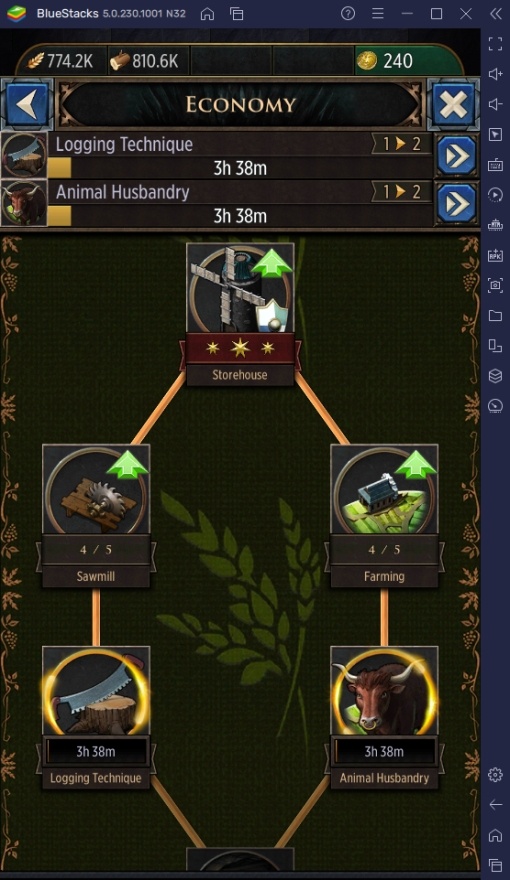
When it comes to limited production boosts, it’s better to activate them when your House is experiencing a drought of resource income. Activating these bonuses while you are still swimming in resources is a complete waste since it doesn’t really change anything. Players should also start crafting Hero Equipment early on and work towards upgrading the quality of these items as the game progresses when they collect more materials from the overworld.
Resource Crates
Resource Crates are the most abundant source of emergency resources during the early stages of the game when your economy is still developing. Players should never “save up” these crates for later since they are really meant to be consumed while you are still down. Perhaps it’s a good idea to save some for a rainy day, but if your House is experiencing a shortage in resources, it’s recommended that you spend the necessary amount immediately to help you grow faster.
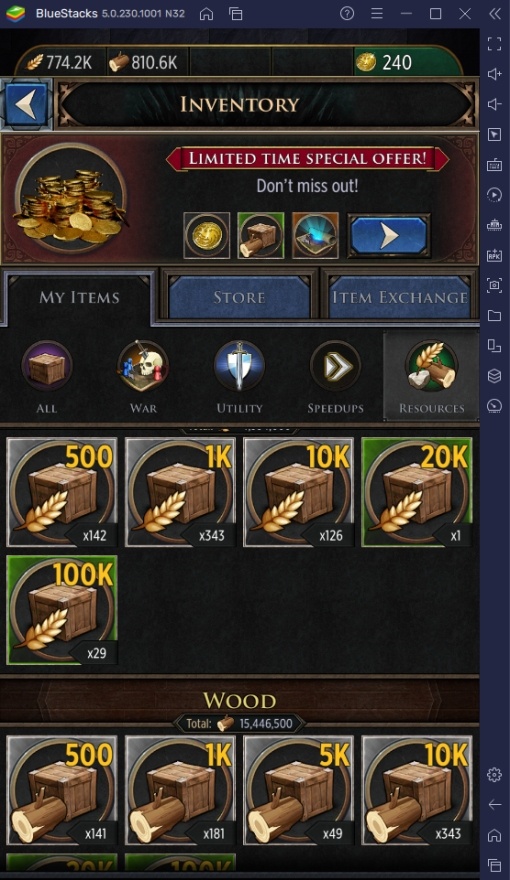
Game of Thrones: Conquest is very generous when it comes to giving players resource crates. These crates can be acquired simply by completing missions, events, defeating monsters, and even simply collecting them from the ship. You should always jump on the chance to acquire these resources since they actually help a lot when the times get rough. However, never be too reliant on these resource crates, otherwise your economy might just be a bloated image of what it really is – empty.













